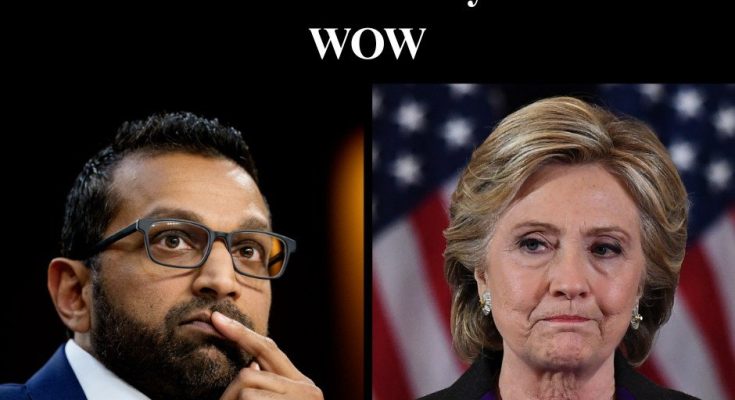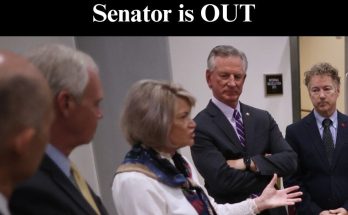FBI Director Kash Patel has provided Congress with a substantial number of declassified documents related to the bureau’s ‘Crossfire Hurricane’ investigation, which examined unsubstantiated allegations of collusion between Trump and Russia, following an executive order from President Donald Trump that mandated their release.
Approximately 700 pages of these documents, known as the ‘Crossfire Hurricane Redacted Binder’ and dated April 9, 2025, have been exclusively obtained by Just the News. This action by Trump and Patel is in response to a March executive order aimed at completing the declassification of documents linked to the FBI’s Trump-Russia investigation—an effort that had faced resistance from Trump’s own Justice Department in January 2021 during the final days of his first term.
This development comes after four years of resistance from the Biden administration’s Department of Justice and FBI, led by former Attorney General Merrick Garland and ex-FBI Director Christopher Wray, who refused to release the documents..
The Crossfire Hurricane investigation conducted by the FBI, which began in 2016, targeted then-candidate and later President Trump based on unverified allegations of collusion with the Russian government, while also implicating 2016 Democratic nominee Hillary Clinton.
This investigation later encountered significant backlash, being perceived as a politically driven effort by certain elements within the intelligence and law enforcement communities to undermine Trump’s administration.
In March, Trump issued a directive titled ‘Immediate Declassification of Materials Pertaining to the Federal Bureau of Investigation’s Crossfire Hurricane Investigation.’ This directive references his previous unsuccessful attempt to declassify the same information on his final full day in office during his first term.
‘I hereby declassify the remaining materials in the binder,’ Trump stated on January 19, 2021. ‘This is my final determination under the declassification review, and I have instructed the Attorney General to carry out the redactions suggested in the FBI’s January 17 submission and return to the White House a suitably redacted copy.’ Trump’s memo from 2021 indicated that he had ‘determined that the materials should be declassified to the maximum extent possible.’
However, the FBI, led by Wray, noted in mid-January 2021 that it had ‘identified the passages that it believed were most critical to keep from public disclosure.’ At that time, Trump expressed his willingness to ‘accept the redactions proposed for continued classification by the FBI’ and mandated that the remaining documents be declassified and made accessible by the Justice Department.
The Justice Department obstructed Trump’s last request for declassification after his departure from the White House, thereby halting the process. A memorandum from Mark Meadows, who was the Chief of Staff at the time, stated on the morning of January 20, 2021, that the Justice Department was required to disclose the binder of declassified documents concerning the problematic Trump–Russia investigation, contingent upon a review under the Privacy Act.
Nevertheless, the DOJ, led by Garland, and the FBI, under Wray, did not release the documents, despite Trump’s order for declassification and Meadows’ urgent instruction.
A two-year inquiry conducted by Special Counsel Robert Mueller from the Justice Department found no evidence of criminal collusion between Trump and Russia. Furthermore, DOJ Inspector General Michael Horowitz pointed out significant deficiencies in the FBI’s investigation, particularly its dependence on a dossier that he characterized as having a ‘central and essential’ role in the politically motivated surveillance of former Trump campaign aide Carter Page.
This dossier was created by Christopher Steele, a former British intelligence officer, who was engaged by the opposition research firm Fusion GPS. Fusion GPS, in turn, was hired by Clinton’s 2016 campaign through attorney Marc Elias of Perkins Coie.
A later report by another Justice Department special counsel, John Durham, determined that ‘neither U.S. law enforcement nor the Intelligence Community seems to have had any actual evidence of collusion in their records at the start of the Crossfire Hurricane investigation.’
Durham also stated that the FBI overlooked the reality that investigators were unable to substantiate any significant claims made in the Steele dossier at any point before, during, or after the Crossfire Hurricane investigation.



